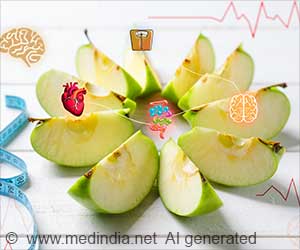Discover the six essential nutrients crucial during pregnancy and how to optimize dietary intake for the well-being of both mother and baby.
- Most U.S. pregnant women lack six vital nutrients in their diets
- NIH's ECHO program revealed nutrient-rich, low-calorie foods that bridge dietary gaps
- Supplements may be necessary for specific nutrients like vitamin D and iron
Identifying Foods That Optimize Intake of Key Micronutrients During Pregnancy
Go to source). They evaluated how much of the six nutrients participants were getting from their diets and matched that data to pregnant nutrition recommendations to predict how much nutrients the participants would need to make up for the gaps in their diet.
ECHO Researchers Assessed the Nutritional Intake of Pregnant Women Across the U.S.
ECHO researchers investigated over 2,300 commonly consumed foods and beverages in the United States, concentrating on those having one or more of the six important nutrients to be ingested during pregnancy. The items and quantities examined contained the bare minimum of one or more nutrients without exceeding 340 calories, as well as the maximum quantity of any of the other nutrients. The diets of 2,450 pregnant women from six ECHO research sites around the United States were then compared to pregnancy nutrition recommendations to discover how individuals could address the gaps in their diets.Nutrient Gaps in Pregnancy Diets
They discovered that no one meal they tested provided enough of all six nutrients in an acceptable serving size to bring average diets in line with nutrient intake recommendations during pregnancy. Raw seaweed contains five of the main nutrients (vitamin A, folate, calcium, iron, and omega-3 fatty acid), but it requires up to 7 cups per day to achieve daily requirements. Twenty-one meals and beverages, including a 1.2-cup ready-to-drink nutritious shake, supplied at least four important nutrients in sensible serving sizes. Researchers also discovered that few meals met the vitamin D and iron targets, implying that dietary supplements may be required to address the gaps for those minerals."This study emphasizes the importance of a balanced and varied diet during pregnancy, along with considering appropriate supplementation, to ensure the well-being of both the mother and the developing baby," study author Katherine Sauder, Ph.D. of the Wake Forest University School of Medicine said.
Dietary Recommendations for Expecting Mothers
The study focuses on a variety of healthful, low-calorie items that pregnant women can incorporate into their diets to assist in meeting nutritional requirements throughout pregnancy. Here are some examples of widely available foods to pick from:- For vitamin A, 0.2 cup raw carrots
- 2.6 cups low-fat milk for vitamin D
- 0.4 cup edamame could supply the recommended quantity of folic acid
- 1 cup calcium-rich nutritious drink or shake
- 0.9 cup iron-rich multigrain cereal
- For omega-3 fatty acids, use 0.1 cup canned chicken
- Identifying Foods That Optimize Intake of Key Micronutrients During Pregnancy - (https://pubmed.ncbi.nlm.nih.gov/37604382/)
Source-Medindia
















